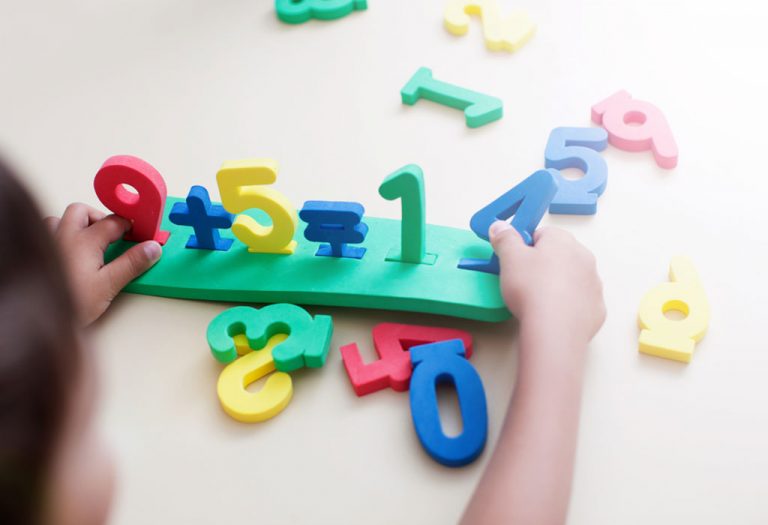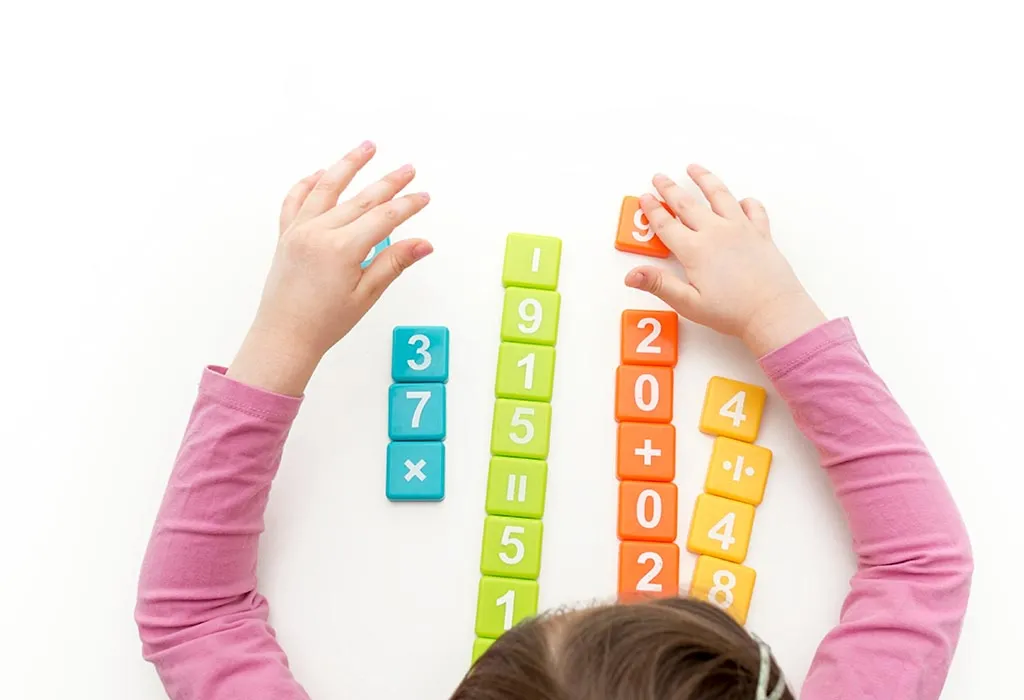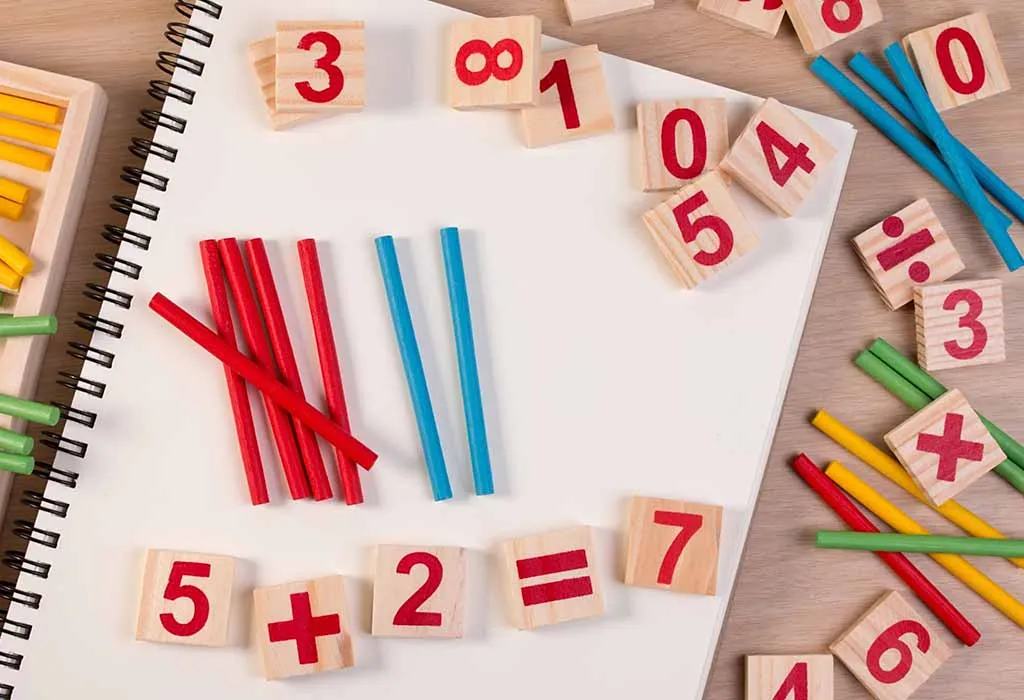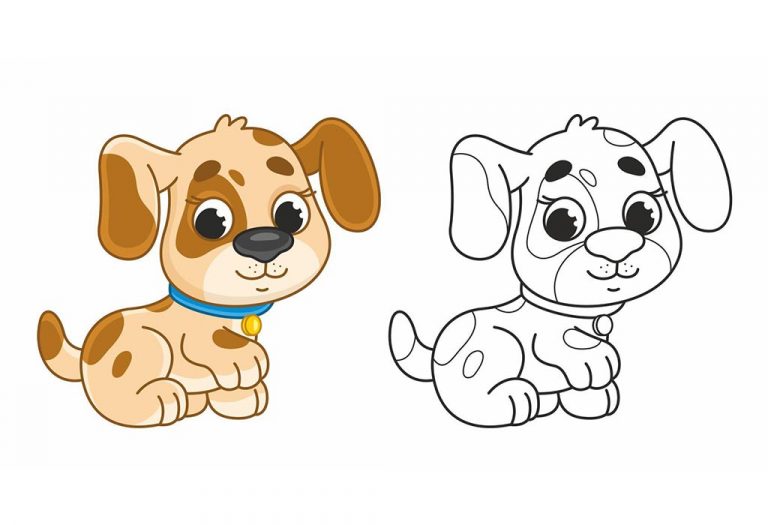Kindergarten Math Curriculum: Concepts & Tips to Support
It is in kindergarten that students learn and begin to develop fundamental skills that can have a lasting impact on them well into their adulthood. A typical kindergarten curriculum builds a strong foundation in English, Maths, Science and Language Arts.
Maths is an interesting subject and a very practical one to learn. Unlike reading, writing, literature, science, maths is more interactive and there is something magical about numbers that kids love. Since maths is more practical and deals with the application of concepts, kids relate to it more than descriptive subjects like English and Science.
Kindergarten maths programs differ across schools and even states. The goals and targets that each school expects students to achieve will be different. However, if you are keen to know what your child will learn in maths and what constitutes the best kindergarten maths curriculum, the list below will give you a clear idea of what to expect.
Topics Covered Under Kindergarten Maths Curriculum
Topics covered in maths are gradually built and integrated into the curriculum so that kids can expand their knowledge all through schooling. This helps them to make a decision about their future and decide if they wish to pursue maths as a profession.
The maths curriculum in kindergarten put a fun twist to the key foundational skills that the youngest students need to know. Lessons are taught to engage children and get them to interact in activities. All the topics feature around learning the concepts.
Listed below are the key concepts that your child will learn about each of the topics. It stresses on what a kindergarten kid should know and the objectives they must achieve.
1. Counting and Numbers
- Children will be capable of recognising and writing numbers (ranging from 0-30).
- Children can name and say ordinal numbers from the first to the tenth.
- Children can arrange sequence until twenty.
- Kids can demonstrate counting one by one by pointing to an object (up to 20).
- Count in twos up to ten.
- Count in ones, fives and tens up to 100.
- Count backwards from ten to zero.
2. Sorting
- Children can create sets of a particular number and label them with the number too.
- Children will be able to join or separate objects in equal groups or sets (anywhere between 0-10 or 0-20).
- Children will be capable of sorting and classifying objects using different attributed like shapes, size, colour, number of corners and position.
- Identify part and whole (especially half and whole).
- Separate whole into different parts and put together parts to the whole.
3. Geometric Shapes and Graphs
- Children can recognise and draw the basic geometric shapes (square, triangle, circle, oval and rectangle).
- Kids will be able to identify, create, extend patterns of three objects and even copy them.
- Children can look at basic graphs and interpret the data. They may need some help in terms of looking and analysing the graph but with that help, they can certainly give the answers.
4. Measurement and Comparison
- Kids can use objects like hands, pencils, blocks to measure volume, weight and length.
- Kids can compare quantities by weighing, measuring and estimating.
- Kids can compare measurements and use terms like heavier, taller, longer, shorter, warmer, less or more.
- Children can grasp and understand positional relationships (above, below, more, less, bottom, top, before, after, middle, right and left).
5. Addition and Subtraction
- Maths expressions in kindergarten include adding and subtracting from 10 with items or objects. Children can use their knowledge to take away objects and add objects to obtain a result
- Be able to do simple maths problems involving addition and subtraction up to 20.
6. Time and Money
- Children can identify coins like nickel, dime, penny and a quarter.
- They can count coins of a certain value and add them especially if they are in 5’s and 10’s.
- Children can tell time up to the nearest hour.
- Children can say the days of the week, months of the year – all in order.
How Is Kindergarten Maths Curriculum Different From Others
The Montessori Maths curriculum and kindergarten maths curriculum are different from each other. Montessori focuses on learning concepts and does not insist on using traditional tools like a pencil or crayon to complete activities. The Montessori method could be compared to a kinaesthetic form of learning where visuals are used to represent concepts and kids are asked to revisit their learning by using visuals.
The maths curriculum for kindergarten is an interactive and involving curriculum that involves cutting, pasting, colouring, drawing- every sort of hands-on component to enhance learning. The purpose is two-fold- learning key concepts and also working on building fine motor skills. Kindergarten curriculum in maths gives the child a tangible way to express their understanding of the concept. It also strives to increase the attention span of the child. The idea is to prepare the child for the forthcoming grades where the concepts will be taught from a broader perspective. It essentially prepares the child to face the challenges that the successive grades bring in.
How to Know If Your Child Is Ready for the Kindergarten Curriculum
- Kindergarten is an amazing time for parents and children. It is the first time that children start to actually learn at home. Parents start focusing on what their child is learning in school and try to support them to learn.
- Each child has their own development rate and also the ability to grasp concepts. Moreover, not every child is similar in terms of attention span. There is no point in pressurising kids to learn key concepts. If you find that your child is unable to sit for long periods of time, try to break their home learning schedule into short sessions.
- If your child seems to master concepts quickly, then it is worth trying to have a discussion with the school to assess their capability and see if they can progress to first grade. If your child struggles with writing and reading, then it is not a viable option to get them to skip a grade.
- If your child has mastered concepts at the age of four and will not start kindergarten until the age of five, then try to get them to start kindergarten early. In most cases, schools do not permit skipping a grade. In such cases, you could work collaboratively with the school to make special accommodations to meet your child’s needs.
- Either way, parents have a great option to strengthen learning and mastering basics in kids. Engage children in work at home that supplement learning. There are various resources available over the internet that would help.
What Can You Do If Your Child Already Knows Most of the Curriculum Material
The kindergarten Maths curriculum and homeschool arrangements work well when your child is one of the upper ability groups. If you find that your child already knows most of the curriculum, you could seek advice from the teacher or the school about how you can support them at work. If your child enjoys maths, there is no need to push. You could also seek support from the school to see what the first-grade curriculum looks like and start training your child to learn the concepts. There are several useful resources online that will help you get your kids to develop their skills in Maths concepts.
FAQs
1. How can I support my child’s maths learning at home?
Simple activities like counting everyday objects, playing board games, discussing shapes, or involving them in cooking to measure ingredients can make maths fun and practical. Reading maths storybooks or using educational apps can also help.
2. What if my child struggles with maths?
If your child finds maths challenging, stay patient and positive. Focus on practical, everyday maths activities and avoid comparing them to others. If concerns persist, talk to the teacher and consider additional resources or professional support.
For most students, kindergarten is their first official year of schooling. Gaining a solid grasp of basic concepts now, will help them feel confident and prepared as they learn new Maths skills in the years to come. Setting up students for success in Maths or any other subject starts as early as kindergarten. Helping them master counting, shapes, basic addition and subtraction will have a big impact on their performance in later years.
Also Read:
Montessori Homeschool Curriculum
Guide to Preschool Curriculum
Guide to Kindergarten Age in USA
Fun Math Activities for Kindergarten
Was This Article Helpful?
Parenting is a huge responsibility, for you as a caregiver, but also for us as a parenting content platform. We understand that and take our responsibility of creating credible content seriously. FirstCry Parenting articles are written and published only after extensive research using factually sound references to deliver quality content that is accurate, validated by experts, and completely reliable. To understand how we go about creating content that is credible, read our editorial policy here.
























